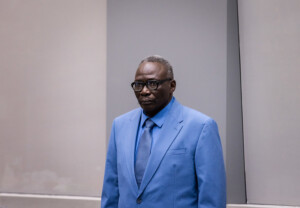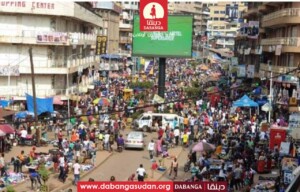Eritrean refugees deported from Sudan in ‘grave danger’
Human Rights Concern-Eritrea (HTCE) has expressed its deep concern about the fate of 30 young Eritrean asylum-seekers who were deported from Sudan to Eritrea on August 29.
In a statement on Friday, HRCE says that the young Eritreans, who were deported on the grounds of illegal entry into Sudan, are in “grave danger of imprisonment, torture, and serious maltreatment”.
The UK-based Eritrean organisation refers to a UNHCR press statement on Wednesday that pointed out that “the return of refugees to their country of origin is a serious violation of international refugee law”.
Human Rights Concern-Eritrea (HTCE) has expressed its deep concern about the fate of 30 young Eritrean asylum-seekers who were deported from Sudan to Eritrea on August 29.
In a statement on Friday, HRCE says that the young Eritreans, who were deported on the grounds of illegal entry into Sudan, are in “grave danger of imprisonment, torture, and serious maltreatment”.
The UK-based Eritrean organisation refers to a UNHCR press statement on Wednesday that pointed out that “the return of refugees to their country of origin is a serious violation of international refugee law”.
Under the Universal Declaration of Human Rights, Article 13.2, everyone has the right to leave any country, including his own. The Sudanese authorities however, have made emigration from Eritrea illegal, HTCE writes.
“About 5,000 Eritreans flee their country every month, primarily because of the compulsory National Service which has no time limit and traps them in virtual slave labour, often for the rest of their lives. According to the Eritrean authorities, those who flee have committed the crime of leaving their county illegally, and are liable for severe punishment,” the statement reads.
“The forcible return of the 30 Eritrean asylum-seekers is believed not to have been the first such breech of refugee law by Sudan. According to Radio Dabanga, Sudanese courts deported 104 Eritrean refugees earlier in August, and sentenced others to imprisonment for their ‘illegal infiltration’ into the Sudanese territory.”
Concentration camp
HRCE’s sources in Eritrea reported that those who were forcibly returned to the country face prison terms that range from six months to three years. They are later sent to the army, usually to border trenches, as a continuation of their punishment.
The sources reported that prior to the recent deportation, more than 120 returnees were detained by the Eritrean authorities in the Adersesr Prison, a military prison and concentration camp close to the Eritrea-Sudan border. Many more are detained in Adi-Abeto and Adi-Nefas prisons near the capital of Asmara.
“These deportations are taking place at the same time as alarming reports are circulating of a European Union plan to pay millions of Euros to undemocratic governments such as Sudan to stop refugees from reaching Europe via North Africa. According to one report, £35million would be used over three years to train border police and set up detention camps, mainly in Sudan,” according to HRCE.
‘Precedent’
“The illegal forcible repatriation of Eritrean asylum-seekers by Sudan in violation of international refugee law sets an extremely disturbing precedent,” Elizabeth Chyrum, Director of HRCE, stated.
“It has almost certainly condemned the returnees to incarceration and severe punishment for exercising their inherent right to leave a country in which they experience grave danger and injustice. It is essential that all UN member states declare their opposition to the flouting of international law by Sudan, and we strongly recommend that member states support the
UNHCR in highlighting Sudan’s illegal refusal to give a fair hearing to applications for asylum from endangered Eritreans.
“It is high time European leaders stopped offering bribes and technology to human rights violating countries in order to prevent refugees from fleeing other human rights violating countries and started to concern themselves more actively with ending the appalling abuses of human rights within these countries.”
Transit country
According to the UNHCR, Sudan is one of the main transit countries of eastern Africans who want to travel to Europe by sea.
Funding by the European Commission to the Sudanese government earlier this year, to be implemented under the EU Emergency Trust Fund for Africa, contains a development aid package of €155 million, “to tackle the root causes of irregular migration in the country” and “improve migration management processes”.
According to the US-activist think-tank Enough Project, the EU-Khartoum migration cooperation legitimises the Sudanese militia state.
Last week, the police in eastern Sudan’s Kassala detained a group of 15 Eritrean asylum seekers during border patrolling. They are being held in a prison in Kassala, awaiting trial on charges of illegally entering Sudan.











 and then
and then